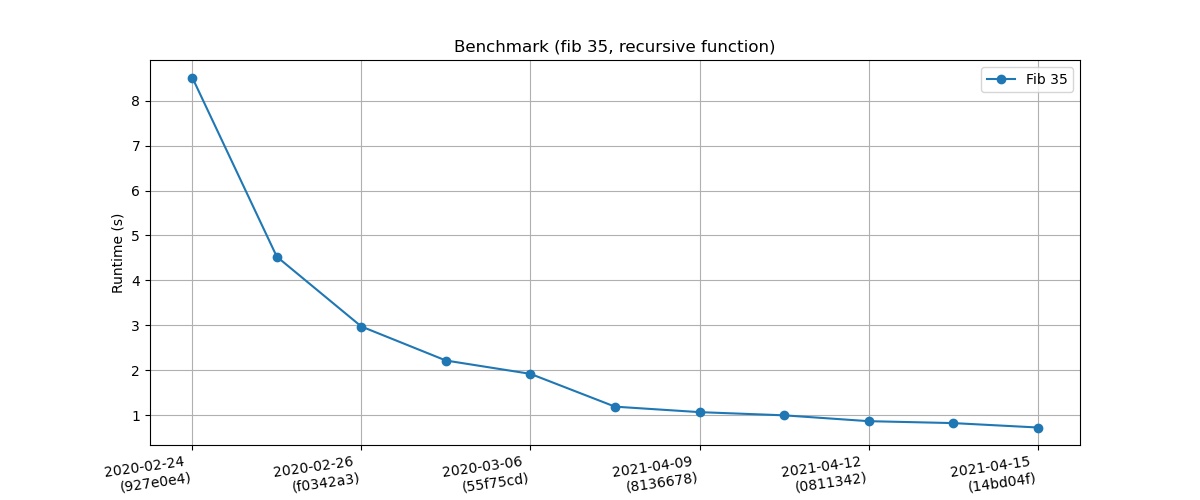This repository moved to https://git.sr.ht/~dvko/monkey-c-monkey-do on 2022-12-07
Bytecode compiler and virtual machine for the Monkey programming language, written in C.
This is the result of going through the wonderful books Writing An Interpreter In Go and Writing A Compiler In Go, but using a different language instead to squeeze more learning opportunities out of it and force myself to really understand what's going on.
Since I like uselessly optimizing for performance, it runs quite fast for something that doesn't do JIT compilation.
// Variable declarations
let a = 5;
let b = 25;
// Reassign (previously declared) variables
a = a * 5;
// For loops
for (let i = 0; i < 10; i = i + 1) {
// i = 0 .. 9
}
// While loops
while (b > a) {
b = b - 5;
break;
}
// If statements
if (b == a || a == b) {
puts("b equals a!");
}
// Strings
let c = "Hello world";
c = str_split(c, " ");
type(c); // "ARRAY"
len(c); // 2
// Arrays
let d = [5, true, "Monkey"];
d[0]; // 5
array_push(d, 10);
array_pop(d); // 10
// Functions
let fibonacci = fn(x) {
if (x < 2) {
return x;
}
return fibonacci(x - 1) + fibonacci(x - 2);
}
// Built-in functions
puts("35th fibonacci number is: ", fibonacci(35));
puts("Type of c = ", type(c));
puts("Length of c = ", len(c));
puts("Integer value of true = ", int(true));More examples can be found in the examples directory.
Build Monkey interpreter (and REPL)
make
Launch the REPL
./bin/monkey
Interpret a Monkey script:
./bin/monkey examples/fib35.monkey
Build & run tests
make check
A benchmark to calculate the 35th fibonacci number using a recursive function is run on every commit through this Github action workflow.
For fun, I ran the same algorithm expressed in some other interpreted languages on the same hardware (my laptop). This is how Monkey-C compares:
| Language | Time (s) |
|---|---|
| Node 15 | 0.21 |
| Pypy 7.3 | 0.24 |
| PHP 8.0 | 0.48 |
| Monkey-C-Monkey-Do | 0.72 |
| Lua 5.4 | 0.72 |
| Ruby 2.7 | 0.80 |
| Python 3.9 | 1.91 |
| PHP 5.6 | 2.72 |
MIT licensed.

